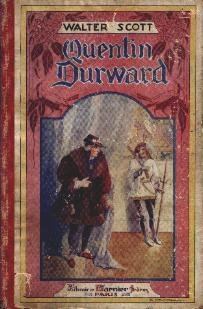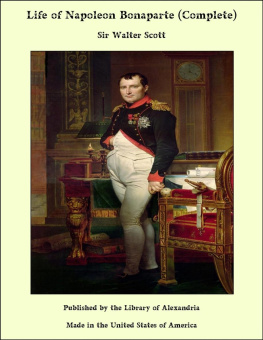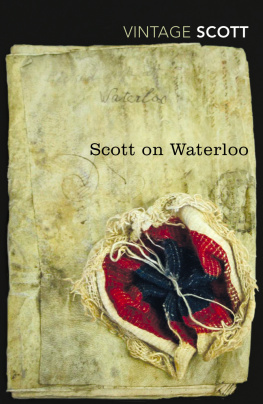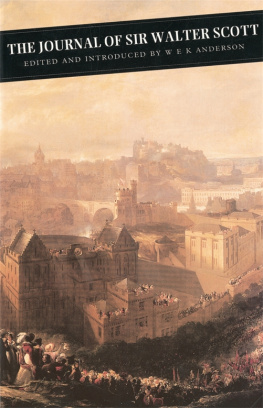Walter Scott - The Antiquary — Complete
Here you can read online Walter Scott - The Antiquary — Complete full text of the book (entire story) in english for free. Download pdf and epub, get meaning, cover and reviews about this ebook. genre: Adventure. Description of the work, (preface) as well as reviews are available. Best literature library LitArk.com created for fans of good reading and offers a wide selection of genres:
Romance novel
Science fiction
Adventure
Detective
Science
History
Home and family
Prose
Art
Politics
Computer
Non-fiction
Religion
Business
Children
Humor
Choose a favorite category and find really read worthwhile books. Enjoy immersion in the world of imagination, feel the emotions of the characters or learn something new for yourself, make an fascinating discovery.

- Book:The Antiquary — Complete
- Author:
- Genre:
- Rating:3 / 5
- Favourites:Add to favourites
- Your mark:
- 60
- 1
- 2
- 3
- 4
- 5
The Antiquary — Complete: summary, description and annotation
We offer to read an annotation, description, summary or preface (depends on what the author of the book "The Antiquary — Complete" wrote himself). If you haven't found the necessary information about the book — write in the comments, we will try to find it.
The Antiquary — Complete — read online for free the complete book (whole text) full work
Below is the text of the book, divided by pages. System saving the place of the last page read, allows you to conveniently read the book "The Antiquary — Complete" online for free, without having to search again every time where you left off. Put a bookmark, and you can go to the page where you finished reading at any time.
Font size:
Interval:
Bookmark:
THE ANTIQUARY
BY SIR WALTER SCOTT, BART.

VOLUME ONE

I knew Anselmo. He was shrewd and prudent,
Wisdom and cunning had their shares of him;
But he was shrewish as a wayward child,
And pleased again by toys which childhood please;
As-book of fables, graced with print of wood,
Or else the jingling of a rusty medal,
Or the rare melody of some old ditty,
That first was sung to please King Pepin's cradle
INTRODUCTION
The present work completes a series of fictitious narratives, intended to illustrate the manners of Scotland at three different periods. Waverley embraced the age of our fathers, Guy Mannering that of our own youth, and the Antiquary refers to the last ten years of the eighteenth century. I have, in the two last narratives especially, sought my principal personages in the class of society who are the last to feel the influence of that general polish which assimilates to each other the manners of different nations. Among the same class I have placed some of the scenes in which I have endeavoured to illustrate the operation of the higher and more violent passions; both because the lower orders are less restrained by the habit of suppressing their feelings, and because I agree, with my friend Wordsworth, that they seldom fail to express them in the strongest and most powerful language. This is, I think, peculiarly the case with the peasantry of my own country, a class with whom I have long been familiar. The antique force and simplicity of their language, often tinctured with the Oriental eloquence of Scripture, in the mouths of those of an elevated understanding, give pathos to their grief, and dignity to their resentment.
I have been more solicitous to describe manners minutely than to arrange in any case an artificial and combined narrative, and have but to regret that I felt myself unable to unite these two requisites of a good Novel.
The knavery of the adept in the following sheets may appear forced and improbable; but we have had very late instances of the force of superstitious credulity to a much greater extent, and the reader may be assured, that this part of the narrative is founded on a fact of actual occurrence.
I have now only to express my gratitude to the Public for the distinguished reception which, they have given to works, that have little more than some truth of colouring to recommend them, and to take my respectful leave, as one who is not likely again to solicit their favour.
To the above advertisement, which was prefixed to the first edition of the Antiquary, it is necessary in the present edition to add a few words, transferred from the Introduction to the Chronicles of the Canongate, respecting the character of Jonathan Oldbuck.
"I may here state generally, that although I have deemed historical personages free subjects of delineation, I have never on any occasion violated the respect due to private life. It was indeed impossible that traits proper to persons, both living and dead, with whom I have had intercourse in society, should not have risen to my pen in such works as Waverley, and those which, followed it. But I have always studied to generalise the portraits, so that they should still seem, on the whole, the productions of fancy, though possessing some resemblance to real individuals. Yet I must own my attempts have not in this last particular been uniformly successful. There are men whose characters are so peculiarly marked, that the delineation of some leading and principal feature, inevitably places the whole person before you in his individuality. Thus the character of Jonathan Oldbuck in the Antiquary, was partly founded on that of an old friend of my youth, to whom I am indebted for introducing me to Shakspeare, and other invaluable favours; but I thought I had so completely disguised the likeness, that it could not be recognised by any one now alive. I was mistaken, however, and indeed had endangered what I desired should be considered as a secret; for I afterwards learned that a highly respectable gentleman, one of the few surviving friends of my father, and an acute critic, had said, upon the appearance of the work, that he was now convinced who was the author of it, as he recognised, in the Antiquary, traces of the character of a very intimate friend of my father's family."
I have only farther to request the reader not to suppose that my late respected friend resembled Mr. Oldbuck, either in his pedigree, or the history imputed to the ideal personage. There is not a single incident in the Novel which is borrowed from his real circumstances, excepting the fact that he resided in an old house near a flourishing seaport, and that the author chanced to witness a scene betwixt him and the female proprietor of a stage-coach, very similar to that which commences the history of the Antiquary. An excellent temper, with a slight degree of subacid humour; learning, wit, and drollery, the more poignant that they were a little marked by the peculiarities of an old bachelor; a soundness of thought, rendered more forcible by an occasional quaintness of expression, were, the author conceives, the only qualities in which the creature of his imagination resembled his benevolent and excellent old friend.
The prominent part performed by the Beggar in the following narrative, induces the author to prefix a few remarks of that character, as it formerly existed in Scotland, though it is now scarcely to be traced.
Many of the old Scottish mendicants were by no means to be confounded with the utterly degraded class of beings who now practise that wandering trade. Such of them as were in the habit of travelling through a particular district, were usually well received both in the farmer's ha', and in the kitchens of the country gentlemen. Martin, author of the Reliquiae Divi Sancti Andreae, written in 1683, gives the following account of one class of this order of men in the seventeenth century, in terms which would induce an antiquary like Mr. Oldbuck to regret its extinction. He conceives them to be descended from the ancient bards, and proceeds:-"They are called by others, and by themselves, Jockies, who go about begging; and use still to recite the Sloggorne (gathering-words or war-cries) of most of the true ancient surnames of Scotland, from old experience and observation. Some of them I have discoursed, and found to have reason and discretion. One of then told me there were not now above twelve of them in the whole isle; but he remembered when they abounded, so as at one time he was one of five that usually met at St. Andrews."
The race of Jockies (of the above description) has, I suppose, been long extinct in Scotland; but the old remembered beggar, even in my own time, like the Baccoch, or travelling cripple of Ireland, was expected to merit his quarters by something beyond an exposition of his distresses. He was often a talkative, facetious fellow, prompt at repartee, and not withheld from exercising his powers that way by any respect of persons, his patched cloak giving him the privilege of the ancient jester. To be a gude crack, that is, to possess talents for conversation, was essential to the trade of a "puir body" of the more esteemed class; and Burns, who delighted in the amusement their discourse afforded, seems to have looked forward with gloomy firmness to the possibility of himself becoming one day or other a member of their itinerant society. In his poetical works, it is alluded to so often, as perhaps to indicate that he considered the consummation as not utterly impossible. Thus in the fine dedication of his works to Gavin Hamilton, he says,
Font size:
Interval:
Bookmark:
Similar books «The Antiquary — Complete»
Look at similar books to The Antiquary — Complete. We have selected literature similar in name and meaning in the hope of providing readers with more options to find new, interesting, not yet read works.
Discussion, reviews of the book The Antiquary — Complete and just readers' own opinions. Leave your comments, write what you think about the work, its meaning or the main characters. Specify what exactly you liked and what you didn't like, and why you think so.






